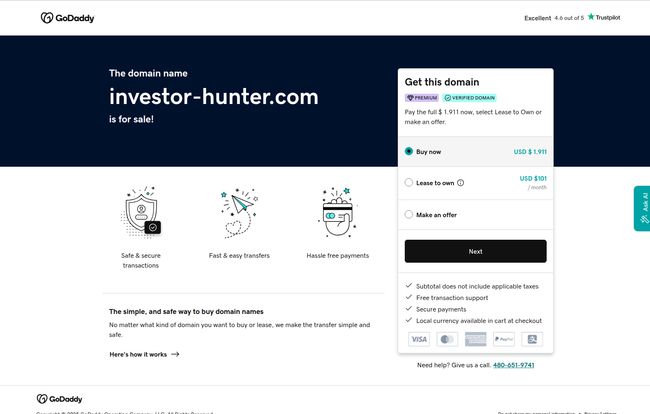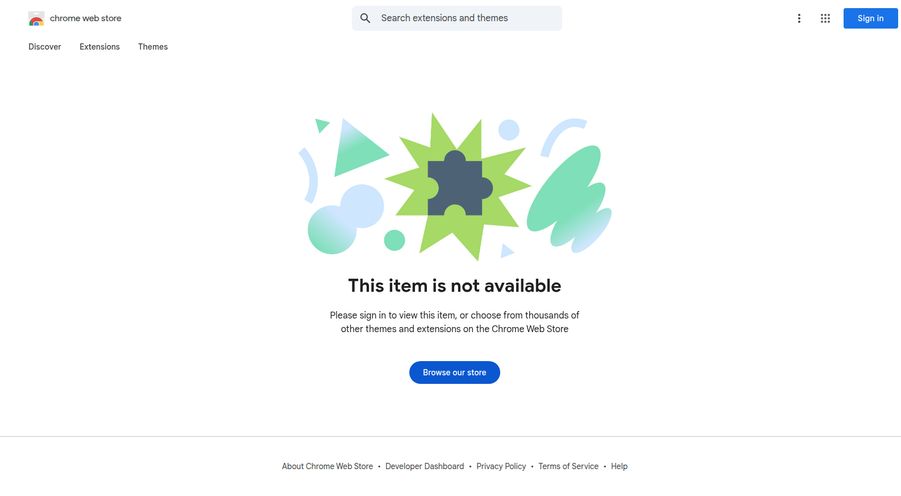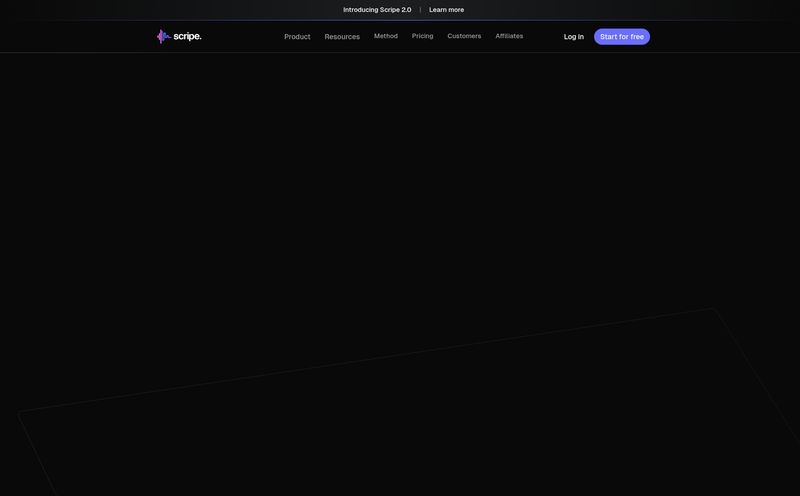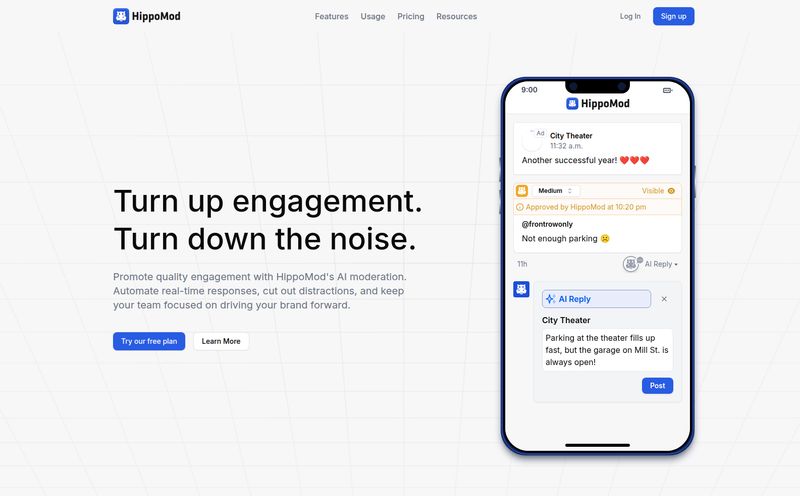If you've ever been in the startup trenches, you know the feeling. It's a soul-crushing gauntlet of spreadsheets, cold emails, and polite 'no's that can make even the most optimistic founder question their life choices. It's less about building your brilliant product and more about becoming a professional email-sender. So, when I first heard about a tool called Investor Hunter, my ears perked up. An AI platform designed to be your personal fundraising bloodhound? Sign me up.
The promise was intoxicating. A platform that doesn't just give you a list, but actively matches your startup with the right investors and then—get this—kick-starts the conversation for you with personalized outreach. It sounded like a magic wand for one of the most agonizing parts of the startup journey. But as I started digging, the story took an unexpected turn. This isn't just a review; it's become a bit of a digital investigation.
The Dream Pitch: What Investor Hunter Was Supposed to Be
So, what was the big idea? Investor Hunter was billed as a smart, AI-driven platform built to connect founders with funders. The concept was simple but powerful. You, the frazzled startup founder, would create a profile detailing your company, your industry, your stage, and what you were looking for in an investor. Then, the magic would happen.

Visit AI-driven Investor Matching Platform
The AI would then scan its massive database—we're talking over 100,000 investors—and act like a sophisticated matchmaker. No more endless scrolling through Crunchbase or trying to decipher cryptic LinkedIn profiles. The platform promised to find investors whose portfolio and interests genuinely aligned with your business. It’s like having a super-connector on your team who has an encyclopedic knowledge of the entire VC world. But it didn’t stop there. The real kicker was the automated outreach. Investor Hunter would draft highly personalized introductory emails to these matched investors, designed to get you meetings. The goal was to turn a months-long slog into a process of minutes.
Why the Idea of AI-Powered Fundraising is So Darn Appealing
Let's be honest, the traditional way of fundraising is fundamentally broken for most people. It's a relationship game that heavily favors those who are already well-connected. A tool like Investor Hunter aimed to democratize that access. Think about the sheer amount of time saved. I’ve seen founders spend 50-60% of their time just on fundraising. That’s time not spent on product, customers, or team building.
Automating the initial, top-of-funnel part of this process is, frankly, a game-changer. It’s not just about efficiency; it's about focus. It allows a founder to concentrate on the conversations that matter, rather than the grunt work of finding who to talk to in the first place.
The Power of a Personalized First Touch
We've all seen those terrible, generic outreach emails. "Dear Sir/Madam, I have a revolutionary idea..." Delete. Investors see hundreds of these a week. Investor Hunter's promise of personalized, targeted outreach is where the real gold was supposed to be. By analyzing an investor's past investments, public statements, and industry focus, the AI could theoretically craft an email that resonates. An email that shows you've done your homework (even if a machine did it for you). In my world of SEO and content marketing, we know that personalization increases response rates dramatically. It's the difference between a thoughtful gift and a generic flyer stuffed in your mailbox.
The Inevitable Risks of Automation
Of course, it's not all sunshine and term sheets. This approach has its pitfalls. The system's effectiveness hinges entirely on the quality of the startup's profile. If you do a poor job describing your company, you’ll get poor matches. Garbage in, garbage out. There’s also the very real risk of the AI overlooking a perfect but non-obvious connection—a wildcard investor who’s looking to branch into a new sector. An algorithm is only as good as its data and its rules; it can't replicate human intuition or a gut feeling.
And let's talk about those automated emails. The quality could be a mixed bag. There's a fine line between a cleverly personalized message and a creepy, uncanny-valley email that just feels... off. A badly automated email can do more harm than no email at all. It can burn a bridge before you even get a chance to cross it.
So, What Happened to Investor-Hunter.com?
Here’s where the story gets weird. After getting excited about the concept, I went to check out the platform. I typed in investor-hunter.com, and I wasn't greeted by a slick SaaS landing page. I was greeted by GoDaddy. The domain name is for sale.
"Pay the full $1,911 now, select Lease to Own or make an offer."
Well, thats not what I expected. A tool designed to secure funding for startups seems to have... lost its own funding? Or maybe it was acquired and the new owners let the domain lapse? Or perhaps the founders pivoted to something else entirely? We can only speculate. It serves as a potent reminder that even a brilliant idea in the startup world faces incredible headwinds. It's a tough business. This discovery turns a simple tool review into a bit of a digital archeology project. Investor Hunter now exists as a ghost story, a cautionary tale whispered among founders.
Hunting for Investors in a Post-Investor Hunter World
Since you can't exactly sign up for Investor Hunter, what's a founder to do? Don't despair. The dream isn't dead, you just have to assemble it yourself, IKEA-style. You can replicate much of its functionality with a combination of existing tools and a bit of elbow grease.
Your new stack might look something like this: Use platforms like Crunchbase and PitchBook for deep data on investors and funds. Combine that with LinkedIn Sales Navigator to find the right people at those funds and get a feel for their professional activity. Then, you can use email-finding tools like Hunter.io (no relation, ironically) or Snov.io to get contact information. Finally, a tool like Mailshake or Mixmax can help you manage and semi-automate your outreach campaigns, but for the love of all that is holy, you write the important emails yourself. It's more work, sure, but it puts you in control of the entire process.
The Future of Connecting Startups and VCs
Even though Investor Hunter appears to have vanished, the problem it was trying to solve is more relevant than ever. The venture capital world is getting bigger and more decentralized. There are more micro-VCs, solo capitalists, and angel investors than ever before. Finding the right one is getting harder, not easier.
I fully believe that AI will play an increasingly massive role in this space. The next generation of these tools will be even more sophisticated. Imagine an AI that not only finds investors but also analyzes their communication style to help you tailor your pitch, or one that flags the perfect time to reach out based on their social media activity. The core idea behind Investor Hunter was sound, perhaps it was just a little ahead of its time, or a victim of the very market it was trying to serve. Its a classic startup story.
Frequently Asked Questions
- What was the Investor Hunter platform?
- Investor Hunter was an AI-powered platform designed to match startups with suitable investors from a large database. It also automated the creation of personalized introductory emails to facilitate the first contact and hopefully secure a meeting.
- Is Investor Hunter still available?
- It appears not. As of late, the domain name investor-hunter.com is listed for sale on GoDaddy, which strongly suggests the service is no longer active.
- How was the AI supposed to work?
- The AI would analyze a startup's submitted profile (industry, stage, funding needs, etc.) and compare it against its database of over 100,000 investors to find those with a history of investing in similar companies, thereby creating a list of high-potential matches.
- Why is personalized investor outreach so important?
- Investors are inundated with generic pitches. A personalized email shows that you've done your research and have a specific reason for contacting them, not just spamming a list. This dramatically increases the chances of getting a reply and starting a meaningful conversation.
- What are the main risks of using AI for fundraising?
- The primary risks include poor matching if your company profile isn't accurate, the AI potentially overlooking non-obvious but valuable investor connections, and the danger of sending poorly-worded or awkward automated emails that can damage your reputation.
- What are good alternatives for finding investors today?
- Founders can use a combination of tools. Platforms like Crunchbase and PitchBook are great for research, LinkedIn Sales Navigator helps find the right contacts, and email outreach tools can manage campaigns. However, it requires a more hands-on approach.
Final Thoughts
The tale of Investor Hunter is a fascinating one. It represents a perfect solution to a very real problem. The dream of taking the pain out of fundraising is something every founder shares. While the platform itself may have faded into the digital ether, the concept is more alive than ever. It highlights a clear and present need in the market. As AI continues to mature, we'll undoubtedly see more tools like it—hopefully, with a bit more staying power. For now, the hunt remains a manual one, but the tools to do it are at your fingertips. You just have to be willing to build your own spear.
Reference and Sources
- GoDaddy Domain Listing for investor-hunter.com - Accessed for information on the domain's availability.
- General industry knowledge from years of experience in the startup and digital marketing ecosystem.



